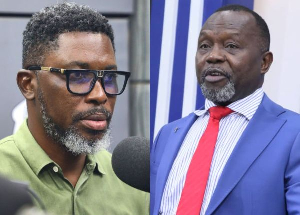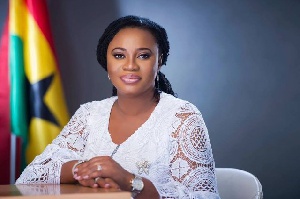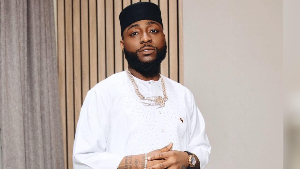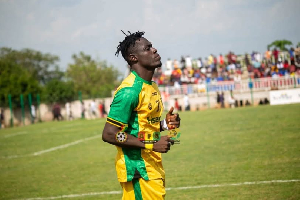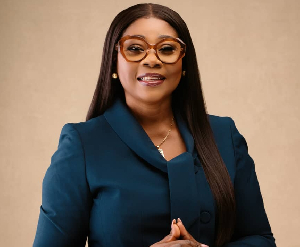There is a dichotomy of assessments among Ghanaians regarding the place of Kwame Nkrumah in the short political history of Ghana. I arrived at this deduction on the basis of conversations with several Ghanaians over a considerable length of time. I see it as a political duty and professional requirement to comment on the contents of the two streams of historical opinions about Nkrumah and to share why I think there is a need to come to a closure on the contradictions associated with the differences.
I want to suggest at the outset that I believe the motivation and philosophical roots of Nkrumah’s political decisions and actions have been misunderstood, misinterpreted or largely unappreciated.
In his political life, since breaking away from the elitist United Gold Coast Convention, UGCC, in 1949, Kwame Nkrumah was never too far away from controversy, especially in relations with his opponents. In death, Nkrumah remains an enigma; at once beloved as the individual who carried the mantle of decolonization of Africa and hated by those who perceived him as a dictator in Ghana.
There are Ghanaians who link the legacy of Kwame Nkrumah with all the positive economic, political and social phenomena in Ghana that resulted from his decisions and actions as a political leader and as chief executive.
Nkrumah’s role as a political leader of Ghana started in 1949 with the formation of the Convention Peoples Party, CPP and ended on Feb. 24, 1966, as a result of a military coup d’etat which also ended his position as the chief executive. Nkrumah served as Ghana’s de facto chief executive beginning in 1951 and continued after independence on March 6, 1957 up to 1966.
There are also Ghanaians who tend to associate Kwame Nkrumah with a number of negative events and actions, from the reasonable to the mundane. I want to say, that for the most part, the negative matters that people link to Nkrumah’s performance do not stand up to the snuff when subjected to reality check.
One charge against Nkrumah that is repeated, over and over again, is that when he assumed power as Prime Minister after independence he squandered a large amount of money that the British colonial government had stanched in the vault for the colonial subjects.
Well, it is nice to know that the colonial power had saved money for the future benefit of its subjects; that money was probably a small payment for all the resources that had been siphoned out of the Gold Coast Colony since the annexation of Ashanti and the Northern Territories in 1901. This is not to take into account the due compensation for the slaves taken out of our land!
My question is, if the British had all that money saved for the people of the Gold Coast, before independence, why did they leave us with just one university; why did young boys and girls of my generation have to travel long distances just to have the benefit of secondary school education? Again, I want to ask why were the British sitting on our cash when the railway system in the Gold Coast was not extended to the northern part of the country? I want to ask also why my mother had to walk 50 miles, one way and return carrying a load of salt on her head?
If I should continue to ask questions, I would not have done my duty if I do not ask why the people of the Gold Coast experienced extensive and persistent infectious diseases when the colonial administration sat on money? Does that make sense to anybody?
Those who say Nkrumah squandered Ghana’s money usually cite his activities associated with Africa’s decolonization as a factor. Does any well-grounded Ghanaian believe that independent Ghana would have survived the onslaught of neocolonialism in a wide ocean of dependent African colonies? For me, Nkrumah’s conviction that “The independence of Ghana is meaningless unless it is linked up with the total liberation of Africa,” remains very clear and apropos.
If indeed, Nkrumah spent billions of Ghana’s assets for the liberation of Africa, he has my support all the way. One misfortune for the long-term consciousness of Ghanaians has been that Kwame Nkrumah made the path towards independence too smooth to be properly evaluated and appreciated.
Ghanaians who accuse Nkrumah of squandering their money are the same that tend to charge him with dictatorship. Before becoming Prime Minister after independence, Nkrumah was the Leader of Government Business in the Gold Coast Legislative Council and when Ghana opted for a republican status he became the president. Each step of the way, Nkrumah did not impose himself on the people of Gold Coast or Ghana; he won elections.
In most cases Nkrumah and his party won elections with landslide victories; he did not use the force of arms to entrench himself into political power. What winning political elections means is that majority of the voters, in the polling booth, exercised their franchise rights in favor of the victorious individual or party. It means also that the voters were in tune with the political message and direction of the victorious individual or party.
Above all, in the realm of free and fair elections, it is reasonable to think that the better-organized party was successful in winning the minds and hearts of the voters. Here is where lies the difference between Kwame Nkrumah and his opponents whom he happened to have beaten, again and again, at the polls.
According to my evaluation, there were two things that set Kwame Nkrumah apart from the pack of all concerned citizens of Gold Coast/Ghana who even shared his ideals for the country. The two things were Nkrumah’s unique personality and extraordinary passion for Africa’s decolonization.
Rather than see Nkrumah as a dictator, I want to argue the alternative that Nkrumah’s personality was one that could be described as absolutist. An absolutist abhors controls or restrictions of any type. By extension, an absolutist ruler eschews controls on power and shuns interference in the process of achieving set goals.
It is important to recognize that absolutism does not equate dictatorship. Nkrumah did not hold the gun to anybody’s head to acquire power; he sought it through the ballot box. But once he acquired it he held fast to it and did not treat kindly any impediment in his way towards achieving set goals.
Whether absolutist behavior is good or bad could be a subjective call. The fact remains that absolute personalities exhibit the propensity to execute set goals; and Nkrumah did, with a passion. If Nkrumah was a dictator then all his anti-colonial contemporaries were the same because none of them had the mandate to tell the world that the people of the Gold Coast wanted independence from colonial rule.
In short, J. B. Danquah, Obetsebi Lamptey, Pa Grant, Ako Adjei, among others who also advocated for decolonization of the Gold Coast were dictators; nobody had elected them to represent the people.
As a student of philosophy, Kwame Nkrumah understood the nature of phenomena; he knew the primacy of matter, meaning it remained in a motionless state unless acted upon by an external force. It is on the basis of that knowledge that after spending time in prison observing and listening to the other inmates Nkrumah concluded, “No man was born a criminal, it is society which turns men into criminals.” I am bringing this out to indicate that the decisions and actions Nkrumah took with regard to some of his political opponents were reactions to counter their actions using the power of the state the voters had granted him.
What has to be understood is that since the inception of the CPP, opposition forces in the Gold Coast/Ghana never relented in pursuit of the political power Nkrumah had coveted.
Opposition forces throughout the political career of Nkrumah were very active in using all forms of attack, including violence, against the person of Nkrumah and his supporters. In this instance, one has to agree with a writer who characterized Nkrumah as “security conscious”, except that the writer in question seemed to apply the characterization connotatively. The security conscious actions Nkrumah took were consistent with the tendency for all living beings to protect themselves against enemy attack.
Upon rigorous examination, it is possible for one to come to the conclusion that for Nkrumah, independence for Ghana was a stepping-stone for decolonization of Africa.
Formation of Nkrumah’s beliefs about decolonization of Africa did not happen on the fly; he paid attention to what Kwegyir Aggrey and Nnamdi Azikiwe were saying before he set sail for further studies abroad. Aggrey who served as vice president of Achimota College when Nkrumah was a student and Azikiwe who practiced journalism in the Gold Coast, had concrete views about the need for African decolonization.
As a student in the United States Nkrumah associated with progressive organizations made up of Africans in the Diaspora who were equally concerned about African decolonization and racism in the world. When Nkrumah returned to the Gold Coast in 1947 he was armed with the burning desire for African decolonization. Consistent with his absolutist personality, Nkrumah did not have the patience to tolerate the gradualist and foot-dragging approach of his UGCC colleagues in the throes of the struggle for African decolonization.
In the end, it is defensible to say that Ghana’s independence turned out to be one of the most important social revolutions of the second half of the twentieth century. Ultimately, Ghana’s independence ignited the fervor for the total liberation of Africa from external political control. That has to be appreciated and for Nkrumah to be credited with how the rest of the world perceived the African, as an African.
One of the most treacherous charges leveled against Nkrumah has been about the phenomenon of one party state in Ghana during the last few years of his political career. One has to be careful not to equate a one party state with dictatorship. The Constitution of Ghana at the time did not enjoin every Ghanaian to be a member of the CPP. There was a parliament in place to make laws. Nkrumah appeared before parliament on a regular basis, as the law required, to explain his actions. Nkrumah did not rule by decrees.
For Nkrumah a one party state was a means of building a new post-colonial nation with very little hindrance in his way. With little fanfare, Nkrumah put in place a concept for accelerated educational program based on a principle of “fee-free compulsory education.” Nkrumah’s educational program bore fruit, unparalleled anywhere in post-colonial Africa. The educational program of Kwame Nkrumah could be seen as consistent with his absolute personality.
Nkrumah has been accused with the crime of allegedly being a communist. He was not. It is doubtful if those who have a problem with communism could recognize one if it was left at their doorstep. Communism is not an individualist phenomenon, this means to charge a single person as communist throws logic out of the window. Nkrumah’s approach was to utilize the power of the state to harness resources of society for the benefit of all citizens.
When one looks back on Nkrumah’s educational and health programs, it makes the United States seem like the most successful socialist society in the world, if Nkrumah was a socialist. Why? Just take a closer look at how the power of the state is used in the provision of health programs such as Medicaid and Medicare as well as access to educational resources.
For me, the way I see the problem some Ghanaians have with the place of Kwame Nkrumah in the history of the country is that they have tended to be sour losers. My advice to Nkrumah bashers comes from the Ghanaian metaphor that after failing to catch up with the antelope, one has to be sincere enough to praise its speed and swiftness!



